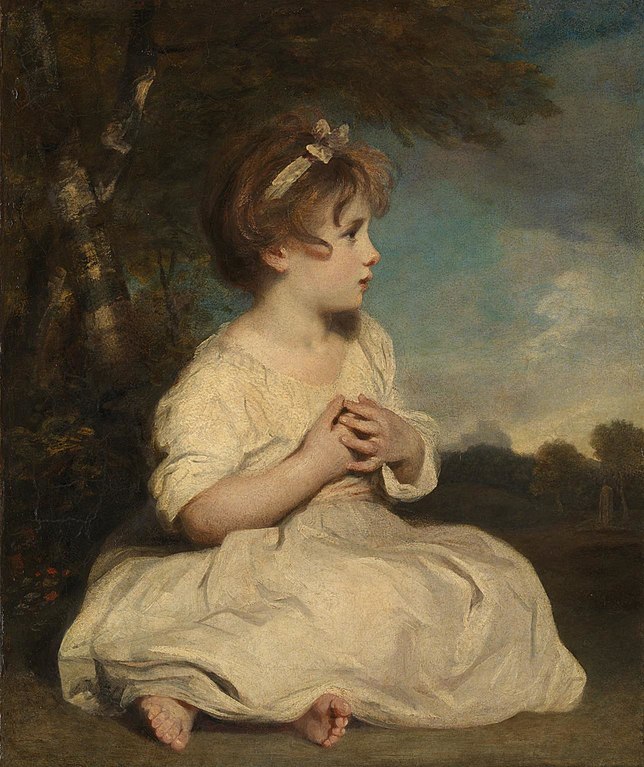
Andrew Marvell (1621–1678) is considered one of the greatest English poets of the seventeenth century. Beside lyric poetry, he wrote political satire, both in verse and in prose, lampooning his contemporaries for their corruption and hypocrisy; most of it was published anonymously, to avoid repression. After his death, many anonymous texts were attributed to him and collected for publication.
In the following charming poem, an old man asks a little girl, “Whose fair Blossoms are too green / Yet for Lust, but not for Love,” to take him as Platonic lover, “While thine unsuspected years / Clear thine aged Fathers brow / From cold Jealousie and Fears.” She should not wait until she has grown into a woman, as she could die before. Like Robert Herrick, Marvell follows the carpe diem philosophy: one should enjoy the pleasures of life now, and not wait for future opportunities. I give the original version in 17th century English:
Young Love
I
COME little Infant, Love me now,
While thine unsuspected years
Clear thine aged Fathers brow
From cold Jealousie and Fears.
II
Pretty surely ’twere to see
By young Love old Time beguil’d:
While our Sportings are as free
As the Nurses with the Child.
III
Common beauties stay fifteen;
Such as yours should swifter move;
Whose fair Blossoms are too green
Yet for Lust, but not for Love.
IV
Love as much the snowy Lamb
Or the wanton Kid does prize,
As the lusty Bull or Ram,
For his morning Sacrifice.
V
Now then love me: time may take
Thee before thy time away:
Of this Need wee’l Virtue make,
And learn Love before we may.
VI
So we win of doubtful Fate;
And, if good she to us meant,
We that Good shall antedate,
Or, if ill, that Ill prevent.
VII
Thus as Kingdomes, frustrating
Other Titles to their Crown,
In the craddle crown their King,
So all Forraign Claims to drown.
VIII
So, to make all Rivals vain,
Now I crown thee with my Love:
Crown me with thy Love again,
And we both shall Monarchs prove.
Source of the poem: The Poems of Andrew Marvell: printed from the unique copy in the British Museum, with some other poems by him, Cambridge, Mass.: Harvard University Press, 2nd edition (1956), digitised on Internet Archive. The poem is on pages 20–21. A hypertext transcription (with some errors) has been given by Wikisource.
For a version in modern English, see for instance The Poems of Andrew Marvell: Sometime Member of Parliament for Hull, New York: Charles Scribner’s sons (1898), digitised on Internet Archive. The poem is on pages 54–55.

